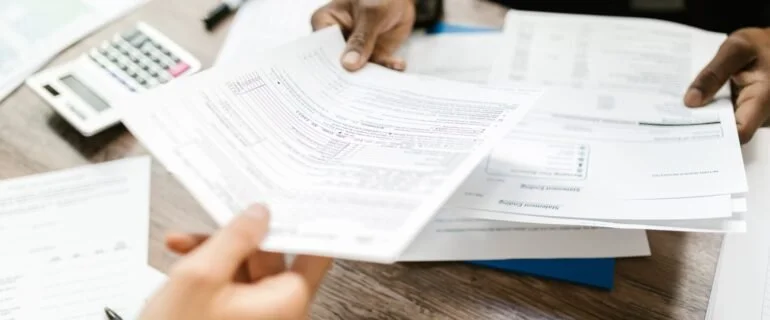Table of Contents
National Insurance (NI) has been in the news recently after changes to employers’ National Insurance were announced in the 2024 Autumn Budget. These changes came into effect in April 2025.
National Insurance is a tax which you may pay alongside Income Tax. However, compared to Income Tax, National Insurance can seem fairly complicated – not least when you consider that National Insurance rates are different for employers and employees; and these rates are distinct again from those paid by self-employed workers.
Depending on whether you are employed or self-employed – and depending on how much you earn – you will likely either pay National Insurance through your wages or via a self-assessment tax return.
Not everyone has to pay National Insurance, and some people are exempt, so it’s important to know how much you should be paying. Otherwise, you may end up paying too much or too little.
What is National Insurance?
National Insurance is a tax paid by most workers. If you are a pay-as-you-earn (PAYE) employee, National Insurance contributions (NICs) will automatically come out of your wages – just like Income Tax. If you are self-employed, you will probably pay NICs through your yearly self-assessment tax return.
How much National Insurance you pay depends on how much you earn and your personal circumstances.
Some people do not pay any National Insurance contributions at all, including those who are at the state pension age, and some on low wages.
It’s worth noting that employers also pay National Insurance contributions on their employees’ earnings. However, the NICs paid by you, as a worker, are not the same as the NICs paid by your employer. To be clear, these are two distinct payments, and if you’re an employee, you only need to worry about your own contributions – the ones that are taken out of your pay packet each month.
How much is National Insurance?
How much you pay in National Insurance depends largely on how much you earn.
Your employment status – whether you’re a salaried employee or self-employed – also determines National Insurance rates and how you’ll go about paying.
And when working out the cost of your NICs, you also have to consider your personal allowance. This is the amount of money any UK worker can earn before they have to pay any tax.
The personal allowance for most people is set at £12,570. If you earn over £100,000 in any given tax year, your personal allowance will decrease by £1 for every £2 you earn over £100,000.
In practice, all this means that if you earn less than £12,570 in any given tax year, you won’t have to pay any National Insurance contributions or Income Tax on your earnings (although you may choose to make an optional National Insurance payment… more on that later).
The personal allowance – like most other Income Tax and National Insurance thresholds – is frozen at the current level until 2028.
National Insurance for employees
The National Insurance contributions paid by employees (i.e. people with salaried jobs) are referred to as Class 1 National Insurance contributions.
For employees, Class 1 National Insurance contributions are currently set at the following rates:
- 8% on income of £242 to £967 a week (£1,048 to £4,189 a month)
- 2% on income over £967 a week (£4,189 a month)
You will not pay any Class 1 National Insurance on earnings below these thresholds.
National Insurance for the self-employed
If you’re self-employed, your National Insurance contributions will be calculated using your annual profits.
Self-employed workers previously paid two kinds of National Insurance Contributions, known as Class 2 and Class 4 NICs. However, as of 6 April 2024, mandatory Class 2 NICs were abolished entirely.
Class 4 National Insurance rates for self-employed workers are currently set at the following levels:
- 6% on profits between £12,570 and £50,270
- 2% on profits over £50,270
You will not pay Class 4 National Insurance if your profits are below £12,570.
What does National Insurance pay for?
National Insurance is different from Income Tax, even though it works in a similar way.
Your National Insurance contributions go into a government fund that is used to pay for a number of things, including state benefits such as the state pension, statutory sick pay and maternity leave.
To qualify for benefits such as the state pension, you need to have paid National Insurance contributions for a set period.
If you haven’t done this, it is possible to make voluntary payments to fill the gap in your National Insurance record and preserve your entitlement to the state pension.
How can you find your National Insurance number?
In the UK, when you turn 16 you are usually automatically sent a National Insurance number. If you didn’t get one you can apply by calling the application line on 0800 141 2075.
If you have lost your National Insurance number, you can usually find it on financial documents such as letters from HM Revenue & Customs (HMRC) or on wage slips.
The government’s Department for Work and Pensions (DWP) handles National Insurance numbers. Each National Insurance number is unique. The number will tell the government how much of the tax you have paid and therefore how much you will receive through your state pension.
How to check your National Insurance record
You can check how much you’ve paid in National Insurance online, using the government website. It will give you details including the following:
- All the National Insurance you have paid throughout your life.
- If you have received any National Insurance credits and how much they are worth.
- Any gaps in contributions such as years when you didn’t pay National Insurance.
- How you can pay voluntary contributions and how much they will cost.
Voluntary National Insurance contributions
You may be able to make voluntary National Insurance contributions to fill any gaps in your National Insurance record. You might do this to make sure you receive your full state pension, for example, or if you are self-employed and want to apply for maternity or paternity pay.
Before you go ahead, check your record so you know that you are eligible to make voluntary payments, and how much you will pay.
As of April 2025, the cost of voluntary ‘Class 3’ contributions for employees is frozen at £17.75 a week.
For self-employed workers whose profits aren’t high enough to necessitate National Insurance contributions, the cost of voluntary Class 2 National Insurance payments is £3.50 per week.
How many years of contributions are needed for a full state pension?
You need 35 years of contributions or credits to get the full state pension when you retire. These don’t need to be consecutive years, and you can make voluntary payments that can count towards your entitlement.
If you’ve made fewer than 35 years’ worth of contributions, you will get a state pension based on the amount you’ve paid in. If that has been for under 10 years, you may not qualify.
Who qualifies for National Insurance credits?
Whether you are eligible for National Insurance credits depends on your circumstances. For example, you might qualify if you are receiving benefits such as Jobseekers’ Allowance or Carers’ Allowance. There is a full list of exemptions at Gov.uk.





